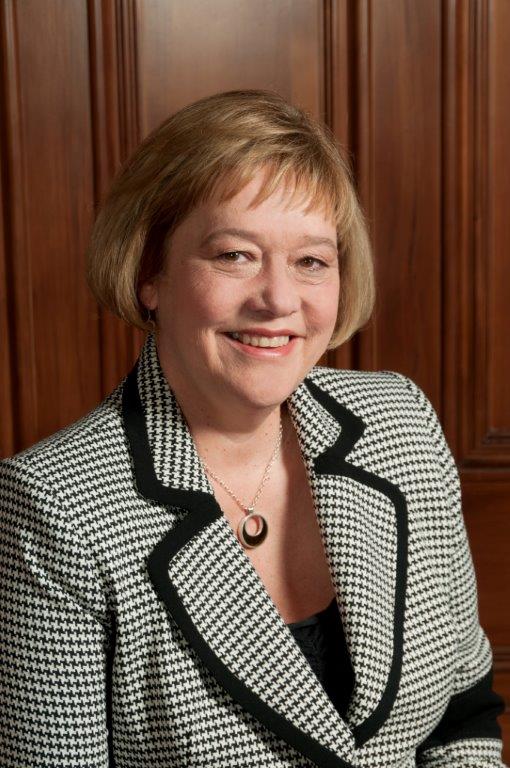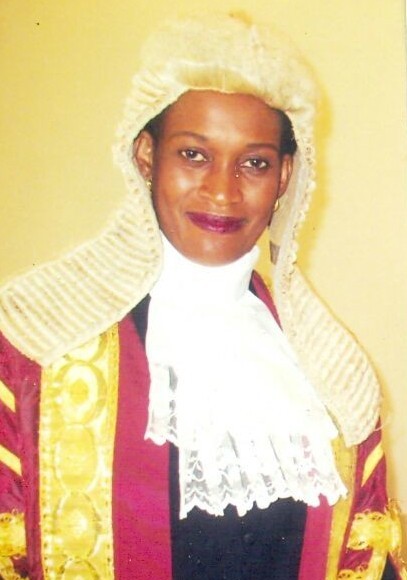It has been said that one of the greatest barriers to women’s access to justice is lack of female representation in courts, parliaments, international tribunals and other decision-making bodies, both nationally and internationally. Despite promising efforts to create gender-responsive and diverse justice systems, women remain underrepresented worldwide.
IDLO’s upcoming Gender Strategy seeks to build upon UN Sustainable Development Goals 16 and 5, particularly as it prioritizes the participation of women in the justice sector as a specific development goal and as a catalyst for accessing justice. On the occasion of Law, Justice and Development week, IDLO is looking at women’s access to justice in fragile contexts. IDLO spoke with 2 members of the International Association of Women Judges (IAWJ) in May about empowering women to enter the justice sector and how that can positively impact women’s access to justice globally.
New Zealand’s Supreme Court now has a female majority with 3 women and 2 men on the bench. However, men make up 68 per cent of the judiciary overall. In Nigeria, 3 out of 16 Supreme Court judges are female, and women represent only 26.2 per cent of the entire judiciary as of 2015.
Why do we need women in the justice sector?
|
Justice Susan Glazebrook, Supreme Court of New Zealand |
Justice Susan Glazebrook, Supreme Court of New Zealand: If you don’t have a justice system that reflects the society, then people are not going to feel part of that justice sector, and they’re not going to have confidence in the justice sector. Diversity in the justice sector should actually give that diversity of views, which will then enable the established feelings about justice to be challenged. So, you do need a justice system that reflects society in order to make sure that the people who come before it both feel as though they will get justice but also that they are understood.
|
Justice Helen Moronkeji Ogunwumiju, Court of Appeals, Nigeria |
Justice Helen Moronkeji Ogunwumiju, Court of Appeals, Nigeria: With particular reference to gender-based issues in the justice sector, the general belief or perception is that women as judges – even though we’re not supposed to approach judicial issues in a subjective, emotional manner – but a woman is probably better suited to appreciate some of the current issues faced by women, particularly domestic violence, rape and defilement. Most of the great advances made in the judicial sector about approaches to these offenses and how to interpret the law have been made by women who can think outside the box, and who are not bogged down by attitudes that a man would naturally have. So, I think it’s important the justice sector should reflect the general society.
In your experience, what are some of the biggest obstacles you’ve seen to gender equality?
Justice Glazebrook: Speaking from the perspective of New Zealand, and I suspect many of the other so-called Western countries, the real issue now is not that girls aren’t educated, because on the whole they would be educated in exactly the same way as the boys - and in fact will be doing better in education in many cases than the boys. The problem is that when they come out of that education, they still don’t get the opportunities for advancement that the boys have. There is still a major gender pay gap, and of course the gender pay gap increases if you’re looking at having other disadvantages such as disability, or minority, ethnicity, that’s associated with that. And the disadvantages in terms of employment increase as well.
Despite it being recognized now that diverse organizations and diverse leadership is good for the financial performance of companies and businesses, nevertheless, the gender pay gap and lack of advancement of women - and especially ethnic women and other disadvantaged women, such as women in poverty – increases and still remains. My take on this is that that is because, despite men and those in power understanding that, […] they also tend to appoint people who are like them. And then women who do act like men are seen as acting outside of the role they should be, and are seen in a different way. There have been studies where people have been given identical CVs, just with a name change and people judge the male CV much better than the woman’s CV. So, I think that those are some of the obstacles in what we would call societies where effectively education is probably equal, but nevertheless equality hasn’t been achieved.
Justice Ogunwumiju: In Nigeria, and I suppose most of Saharan Africa, it would be poverty as the main obstacle to gender equality. Poverty prevents access to justice, because an uneducated girl has so many more disadvantages than an uneducated boy.
Even though we have been bridging the gap in the education sector, we are not bridging the gap in real terms of access to economic justice, economic avenues for women to have more access to areas where they can make money and train their female children. Most times, the men don’t want to train their female children because when the female children become whatever they become, they are going to bear another man’s name. And that’s the problem with access to justice, it’s poverty-related and [due to] the lack of education for young girls.
In New Zealand, the number of female law graduates has exceeded that of their male counterparts - with 61.8 per cent of new admissions to the profession comprising women in 2013 – and in Nigeria, there is also promising gender parity.
What is a positive message you would send to young women seeking a career in law and justice?
Justice Glazebrook: I think the positive signs are that the dialogue, especially now from men as well, is starting to recognize the benefits of diversity, and that can only be positive for young women. The other thing I would say is that young women are hardworking, they are intelligent, they are very capable - and you have to believe in yourself.
Justice Ogunwumiju: In Nigeria, we have almost 50/50 [gender parity] in the classrooms of law students. For the women in Nigeria, the glass ceiling in the judiciary has been broken with a female chief justice in Nigeria. For us, there is no end to what you can achieve as a lawyer, as a judicial officer, in the Ministry, as a prosecutor, a defense lawyer or solicitor in business and law firms. So, it’s an exhilarating experience, and I would I would urge young women to go into the law. There are so many fields you can explore. You don’t have to bog yourself down with a narrow path - there is no dead end. If you feel that this experience isn’t worthwhile, you can always go for something else. The branches are many. And I think young girls should just go for it!



